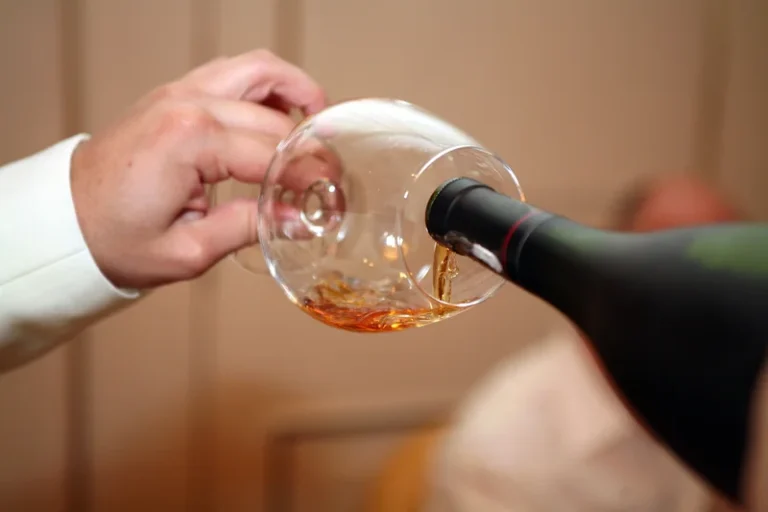High Functioning Alcoholic: Traits, Signs and Symptoms

A glass of wine, a glass of whiskey, a couple of beers in a friendly company – what’s wrong with that? Moderate drinking hasn’t hurt anyone yet. Even doctors say it’s good for your health. Be careful, the cult of alcohol is developing in society: there is just one small step from “everything is under control” to serious problems.
We are accustomed to thinking that the word “alcoholic” means a person lying dead drunk in the mud, from whom decent people shy away, an unemployed, homeless, lost person who causes nothing but feelings of disgust and pity. Despite the fact that the problem of alcohol dependence encompasses all strata of our society, penetrates all spheres of life, and affects people of any level, such an image of a typical “alcoholic” is still firmly held in our collective consciousness.
Therefore, when we see successful people who appear in society with their wives and children or attending church services, we can be greatly mistaken taking external well-being for real. There are brilliant masters of their craft, professionals of the highest standard, people well-off financially, and leading outwardly correct, decent life about who you will never think that in fact, they are alcoholics.

A high functioning alcoholic
Some individuals do not cause any suspicion about underlying alcohol addiction and meanwhile, they secretly drink to a point when they do not remember anything. There are caring fathers who come home from work in the evening, spend time with their children, help with their homework, and then sit down in front of the TV and get drunk. Such people wake up the next day, take a shower, drink the strongest coffee, and go to work as if nothing had happened. Day after day, their two-faced life goes by.
Such alcoholics are called “high functioning” because they do their job well, enjoy respect and trust in society, they keep their word, they may even occupy a high position, be in a leadership position. However, they are slaves of alcohol. Alcohol has become the master of their lives, cruelly holds them, and does not allow them to step away or break off the leash.
Secretive functional alcoholics are very careful: they make every effort not to give themselves away, to protect the real master of their lives from the danger of exposure, faithfully serve their master, whose name is alcohol. Even when they are very drunk, they are able to control themselves, to control their behavior so much that they seem adequate and quite sober.
High functioning alcoholics are a mysterious and paradoxical phenomenon, indeed a puzzle that is very difficult to solve. Such alcoholics are not only difficult to expose but also difficult to help, primarily because they are in complete non-recognition of their illness. They do not perceive themselves to be unhappy and doomed and appear to others successful and happy: after all, their life does not fall apart. They have a good place of work, an exemplary family, respect in society.

Do these alcoholics really need help? All these visible aspects of well-being can hide from human eyes the opposite, dark side of the life of “successful” alcoholics, mask the inner hell in which a person suffers, being left alone with himself without a mask.
Family and relatives, of course, know, or at least guess that there is a drinking problem, but they often get used to this “secret” passion of their loved one and believe that such “relaxation” is quite normal for such a hardworking person. “Daddy loves drink to relieve stress after work ”,“ Mom drinks a few glasses of wine to unwind, take a break from work ”, etc. After all, can real alcoholics achieve this in life? “Real alcoholics are not able to live so beautifully and keep everything under control as I do ” – thinks a functioning alcoholic, and this illusion postpones the inevitable collapse for the time being.

Take back control of your life and start on the road to recovery now.
How to understand that a person is a functional alcoholic?
- They drink at a certain time, in certain situations, and only certain drinks. You may hear: “I never drink on weekdays”, “I only drink in bars” or “I only drink beer”. A functional alcoholic convinces oneself that they control the drinking, but this is an illusion of control.
- These individuals ask family or friends to cover them. For example, coworkers replace them on hangover days. The wife pays the bills when the husband has spent too much on alcohol.
- The high functioning alcoholic completely denies the problem. In the end, they retained an appearance of success despite their love of booze. Friends and loved ones unknowingly allow or even encourage this behavior for various reasons.
- They spend their free time alone. At the same time, they can be sociable in the office, at a corporate party. Yet, when not working, they prefer to drink in the kitchen or at the bar, completely alone. Sometimes high functioning alcoholic discourages his or her partner from inviting guests because the addiction can be revealed.
- Such alcoholics periodically do not fulfill personal obligations. The high functioning alcoholic can receive awards at their job for great achievements while forgetting about the wedding anniversary or the birthday of the child because he’s drunk or suffering from a hangover.
- They can secretly fight mental problems. For example, the individual became addicted to antidepressants, so depression, phobia, or anxiety disorders would not be noticed. When colleagues do not see, the individual is withdrawn, irritable, may try to hurt oneself, etc.
- Nervous breakdowns, bruises in relatives of a functional alcoholic are not uncommon. They support the illusion of well-being in the house in every way because they depend on the alcohol addicted person financially or for other reasons.

High functioning alcoholic treatment
The outer book cover does not match what is inside. No matter how well a person manages to maintain the outer façade good looking, the inner world of a person can be all in ruins. Deep down, a person may want to find a solution to the problem of alcoholism, but at the same time, he may be afraid of undermining his comfortable, familiar life. After all, the position in society, the opinion of others are at stake: What will people say? What will happen to my family if it becomes known that I am an alcoholic and need help to recover from alcoholism?
Admitting to yourself that alcohol has enslaved you is difficult and painful. However, this is the first step to a successful high functioning alcoholic treatment. If you admit the problem and realize that alcohol is a killer and sooner or later will do its dirty deed, you will see how much you were missing before and how much damage you were doing to yourself and the people around you. Start looking for help!
Consider recovering from alcoholism with a free rehabilitation program. There are rehabilitation centers that can help both men and women. There are many other resources and programs that help alcoholics get free from the slavery of addiction and not live a two-faced and secretive life, but a real, full, meaningful life. Help can be found no matter where you live.
Maybe this is your last chance to heal before it’s too late ???




